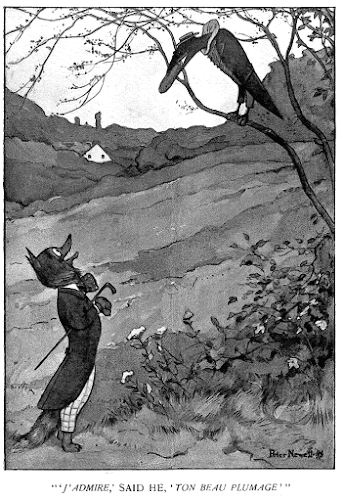I set a goal to read the entire Martyrs' Mirror this year. It's a huge book and slow going but I'm learning some things. This morning I came across a word that was new to me--sycophant. Any guesses what that means? Or maybe you already know. Either way, here is the context in which it was used.
"Samson was also a Scotchman by descent, and an elder and companion of said Clement. He and
Sydonius, Bishop in Bavaria, and others of like purpose and belief, were as one heart and soul, to
oppose with the Word of God, Boniface, the papal legate, who proposed to oppress the people with
manifold superstitions and burdens. This, not only Samson, but also Sydonius and the others boldly
did. They taught with word and pen, that the apostolical embassy (as it was called) of Bishop
Boniface bore a closer resemblance to paganism or antichristendom, than to christendom. and that he
had deformed rather than reformed, France and Germany. Again, that he was a sycophant and flatterer of the pope of Rome, to whom he had not only bound, but completely sold himself, as a
sworn slave."
I consulted the dictionary for the definition of sycophant. "A person who tries to please someone in order to gain a personal advantage." Synonyms were--yes-man and slang words including boot licker and brown noser. So a sycophant is an insincere self-seeking person.
This poem was published in Wetmore’s 1898 anthology Fables for the Frivolous.
The Sycophantic Fox and the Gullible Raven
by Guy Wetmore Carryl
A raven sat upon a tree,
And not a word he spoke, for
His beak contained a piece of Brie,
Or, maybe, it was Roquefort:
We’ll make it any kind you please—
At all events, it was a cheese.
Beneath the tree’s umbrageous limb
A hungry fox sat smiling;
He saw the raven watching him,
And spoke in words beguiling.
“J’admire,” said he, “ton beau plumage.”
(The which was simply persiflage.)
Two things there are, no doubt you know,
To which a fox is used:
A rooster that is bound to crow,
A crow that’s bound to roost,
And whichsoever he espies
He tells the most unblushing lies.
“Sweet fowl,” he said, “I understand
You’re more than merely natty,
I hear you sing to beat the band
And Adelina Patti.
Pray render with your liquid tongue
A bit from Götterdämmerung.”
This subtle speech was aimed to please
The crow, and it succeeded:
He thought no bird in all the trees
Could sing as well as he did.
In flattery completely doused,
He gave the “Jewel Song” from Faust.
But gravitation’s law, of course,
As Isaac Newton showed it,
Exerted on the cheese its force,
And elsewhere soon bestowed it.
In fact, there is no need to tell
What happened when to earth it fell.
I blush to add that when the bird
Took in the situation
He said one brief, emphatic word,
Unfit for publication.
The fox was greatly startled, but
He only sighed and answered “Tut.”
The Moral is: A fox is bound
To be a shameless sinner.
And also: When the cheese comes round
You know it’s after dinner.
But (what is only known to few)
The fox is after dinner, too.

No comments:
Post a Comment